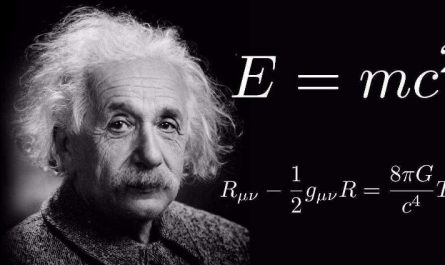Many friends have this experience, because work requires a few days of continuous overnight, and then the next thing is to sleep in the dark for a day or even longer! But do you know that a person can sleep for a maximum of a few days continuously?
What is the longest sleep time?
In 1959, the well-known British hypnosis expert Peter Powers hypnotized a participant under the eyes of many European media, and fell asleep for 8 days. However, some people also raised objections, saying that he might just pretend to be asleep, because there was no modern sleep monitor at the time, and it was difficult to determine whether the other party was asleep.
So how long does a doctor monitor sleep time? In October 2017, Wyatt Shaw, a young boy from Kentucky, was only 7 years old and slept for 11 days under unexplained reasons. Even the doctor did not know what happened:
On October 8, 2017, Wyatt attended his uncle’s wedding and fell asleep after returning home. The next day his mother planned to wake him up, but it seemed to wake up for a while and then fell asleep again soon! Wyatt was taken to Norton Children’s Hospital, where he slept for another 10 days.
The doctor had to use drugs to treat epilepsy to wake him up. Afterwards, Wyatt had difficulty walking and talking, and then gradually returned to normal. However, the doctor was unable to determine why Wyatt fell into a drowsiness. Heaven’s lethargy.
What is the longest time without going to bed?
On January 8, 1964, 17-year-old Randy Gardner (Randy Gardner) set a world record, staying awake for 11 consecutive days and 25 minutes (264 hours and 25 minutes). It was just a small experiment at the beginning. , But shortly after it started, it attracted the attention of sleep experts across the United States.
William Dement, a sleep research expert at Stanford University, arrived at the site shortly after they started the experiment to participate in the experiment. Will prolonged sleeplessness affect health or even death? Because the BBC once had an experiment that did not sleep for 15 days The cat who participated in the experiment died, would humans have the same experience? This was an unsolved mystery at the time, so Dement’s arrival still gave everyone a lot of peace of mind.
William Dement
Randy Gardner did not use drugs in the experiment. In addition to his normal diet, he occasionally drank Coke, but he did not take the neurostimulants (similar to stimulants) that were popular at the time, such as dextroamphetamine and amphetamine, for the first few days. , The effect of not sleeping is not great, but with the development of the experiment, the situation has changed greatly, and the evil effects of not sleeping began to appear.
Attention began to lose concentration, taste, smell, and hearing began to lose sharpness, and even cognitive and perceptual abilities began to decline. In the end, Randy Gardner could barely stay asleep only under the stimulation of a friend for 11 days. After the experiment was over, he did not go to sleep immediately, but was sent to the Naval Hospital for EEG examination.
As a result, the doctor judged based on his EEG that some tissues of Randy Gardner’s brain may have been in light sleep at the end of the test, and some areas were still awake, which may be 11 days without sleep and still not produce The cause of serious damage.
Randy Gardner slept for 14 hours after the experiment, which is not long, but the proportion of his REM sleep (ie dream sleep) increased sharply in the next few days, and then slowly declined in the next few days, and gradually recovered. Normal, but after getting up for the first sleep, he went to school. This young man is really in good health!
Since then, in 1977, Maureen Weston broke the previous record of not sleeping by Randy Gardner for 449 consecutive hours (18.7 days) without using stimulants. William C, a sleep researcher at Stanford University . Dr. Dement also monitored the process of his experiment. The Guinness Book of World Records recognizes Gardner’s attempt as the longest sleepless record.
Why do people sleep?
When people are sleepy, they must go to sleep. This is a truth that everyone understands, but scientists have not been able to find the reason why sleep is from a scientific point of view. However, Stanford University has found that zebrafish’s neural activity characteristics during sleep are similar to that of humans. The angle speculates that sleep activity started at least 450 million years ago! As for why to sleep, scientists have put forward a variety of theories:
Both humans and animals need to sleep
1. Sleep recharges the body with energy
This statement is more interesting. Daytime energy consumption is relatively large, while sleep consumption is relatively small. Therefore, in 1975, the American neuroscientist Berg proposed that the purpose of sleep is to reduce the basal metabolic rate, so that the energy gained can be preserved, and the daytime loss can be restored. Everyone thinks it’s quite reasonable!
But opponents also believe that sleep can only reduce energy by 5-15%, which is very limited. This explanation is too simple and crude. Moreover, modern humans always consume too much, not because of insufficient energy, but too much, so this theory was quickly abandoned.
2. Sleep is to repair the body and brain
During sleep, it will promote protein synthesis, cell renewal, the release of growth hormone, and repair immune function. During sleep, it is also conducive to the brain’s removal of metabolic waste products, allowing the brain to operate more efficiently. Lack of sleep can often bring harm to our body and brain in many ways.
Scientists at Johns Hopkins University have shown that during sleep, the release of the inhibitory neurotransmitter GABA is usually increased. If sleep is deprived, GABA will accumulate in neurons and be released in a waking state, causing attention Lack of concentration and slow response. If you drive at this time, it may be equivalent to driving under the influence.
3. Sleep is to deepen and consolidate memory
In 2003, biologists Giulio Tononi and Chiara Cirelli of the University of Wisconsin-Madison proposed that the synapses that connect brain neurons in the human brain are The connection is very intense during the day, and there is a lot of “noise” in the brain, which is not conducive to memory.
When the connection is reduced at night, the things that really need to be remembered in the brain exceed the “noise”, which is convenient for the brain to process and form deep memories in this process. In addition, this study is similar to the memory loss effect of human beings with age. As age increases, there are more synaptic connections, and memories are more likely to be overwhelmed by complicated “noise”, so they are not as good as childhood memories.
Of course, the more you sleep, the better. Just keep the sleep time of the current age group. For example, keep 10-12 hours of sleep in childhood, at least 8 hours in adulthood, and keep getting 7 hours of sleep as you grow older.






